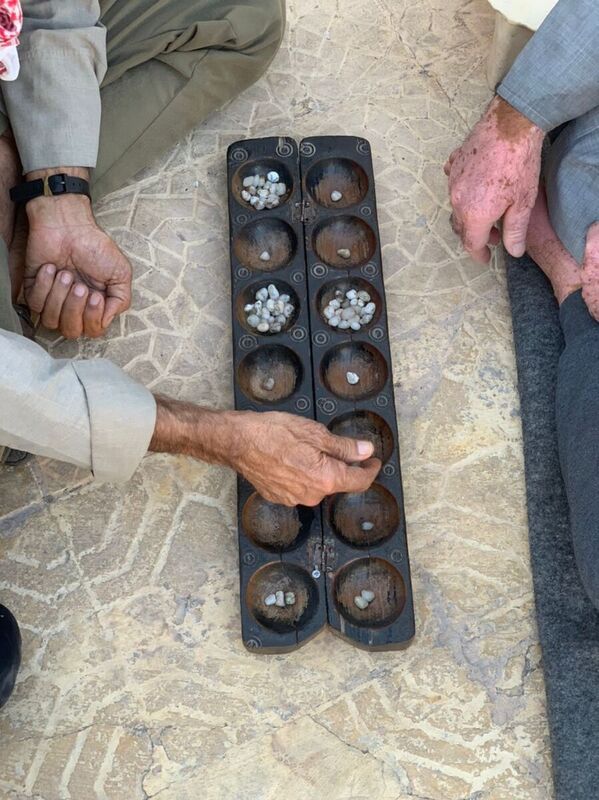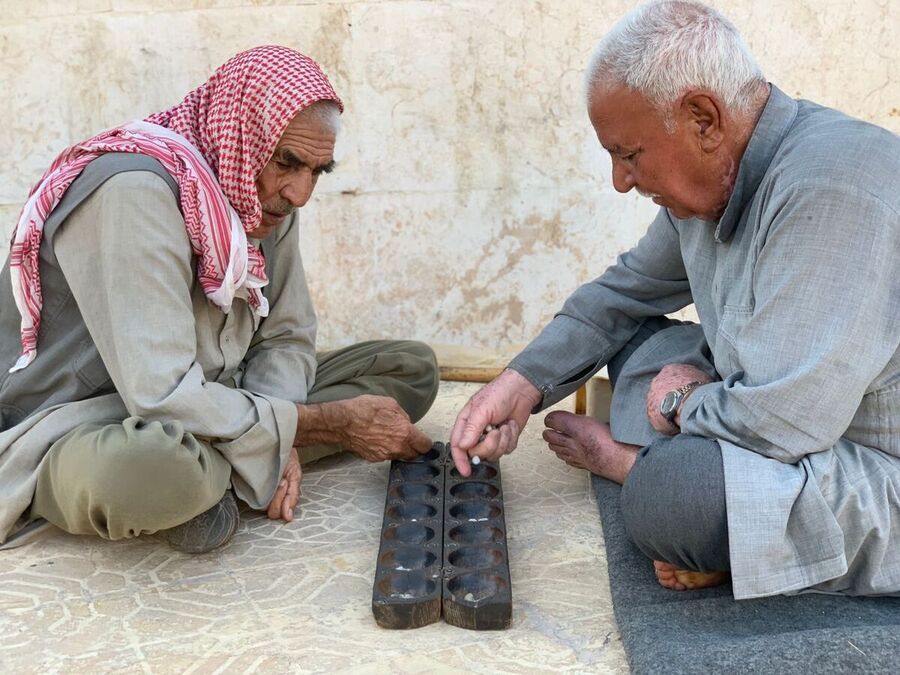Nujin Damr
After sunset, I sit alone in the room in my house and look into our valley; the women come out and sit in front of their doors or wash the front doors. They water the basil plants in front of their doors, and the smell of basil and the wet ground mix. The three old men in our neighborhood leave their houses and go to their group as usual. They have a walnut board and a stone bowl in their hands. They sit and play with the stones. Their group and play continue until sunset.
But this time, like every other day, I wasn’t just watching them curiously in the room, my curiosity led me down and join their group and learn the game that is so fascinating.
One of them is Mohammed Abbas, an 81-year-old man who plays every day with his friends, Mohammed Ato and Nahsan Abrush.
I asked him:
"What is the game you're playing?"
Muhammad smiled and told me:
“The Kurds were not happy with anything; they were happy with stones. They made a game with sand and some stones to make them happy.
I liked their conversation and sat next to them and they were talking:
“We were young, we went to graze sheep, we were shepherds, we built 14 holes for ourselves. We collected stones around us and played with them. We call it Mangal, a game the shepherds enjoyed and would have been happy with.
Mohammed Abbas is from Kobani and has played the game for 60 years. He learned the game from his father, and his father from his grandfather. He says this game is very old among Kurds. Everyone used to play it, adults, younger, and women. But now only the elders play it. Mohammed doesn't want the game to be forgotten and sees it as an ancient Kurdish culture, so he tries to teach his ten-year-old grandson, takes him to game groups, and plays with him at home. "This game is great for brain development, especially in terms of math."
History of Mangal
Mangal is an ancient traditional game, that existed among the peoples of the Middle East, Central Asia, and Africa, and the people of Kobani still play this game.
According to historical documents, the game has been played since the 1700s. After Gobeklitepe was discovered, a game very close to the Mangal game was found in a wall of Gobeklitepe, which dates back 10000 years. It is believed to be used not only as a game but also for measuring and counting.

The Kurdish people, especially the people of Kobani, who still play this game, say that it is a very old Kurdish game and its history goes back to the 18th century when Darwish Avdi played this game and they sing songs about it. Singer Kamal Khalut tells the legend of Darwish Avdi and talks about the game of Mangal in one of his songs.
Technique and introduction to the game
The game consists of 98 stones and 14 holes, each with 7 stones, and requires intelligence and mathematical skills to play.
This game is played by two people, the box is made of boards, two pieces of boards opposite each other, and there are 14 holes (kurtk or chal) and 98 stones, each hole containing seven stones. Every 7 holes belongs to a player. First, a player removes all the stones from a hole and distributes them among the other holes. In some holes, the stones increase; in others, they decrease, so the stones in a hole become Zo (zero), 2, or 4, and players take the stones. The game continues until one takes all of the other player's stones and wins.
The people of Kobani like the game very much, so although this game has spread to many parts of the world and is known as a popular game in many nations, the people of Kobani say this game originated from the Kurds and spread to many other places.
And future findings will likely confirm this.








